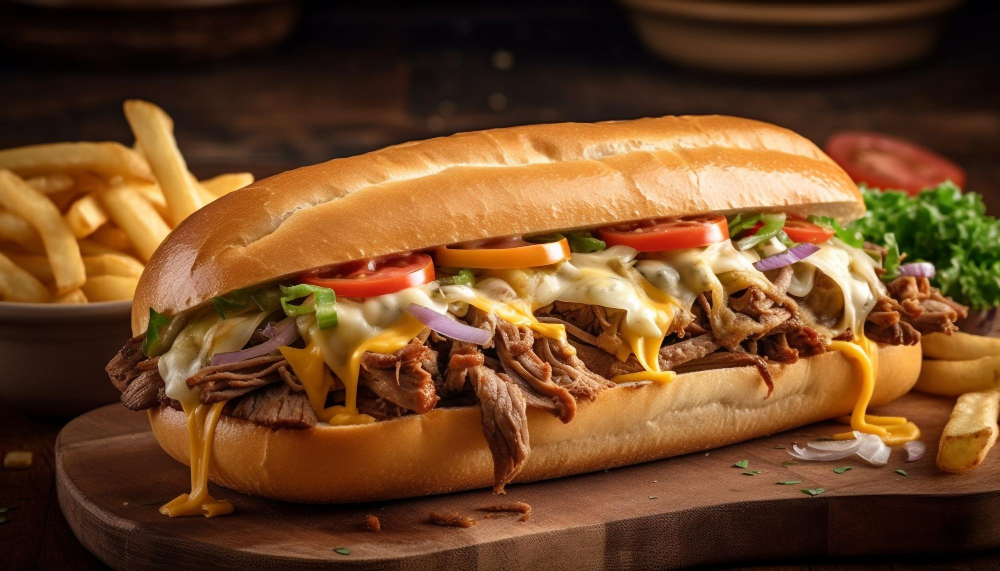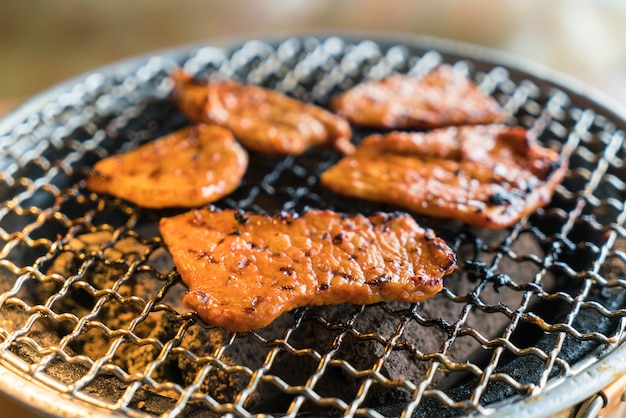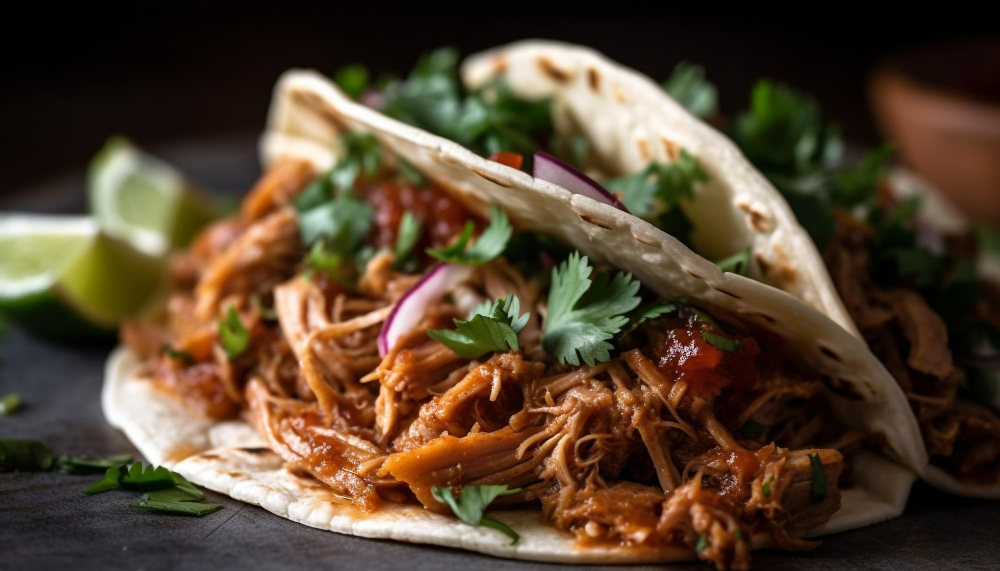How long should you marinate pork for BBQ?
Marinating pork before grilling or barbecuing can enhance its flavor, tenderness, and juiciness. Properly marinating pork allows the flavors of the marinade to penetrate the meat, resulting in a delicious and flavorful dish. However, marinating time can vary depending on the cut of pork, the type of marinade used, and personal preferences.
What is marination?
Marination is a process of soaking food, such as pork, in a seasoned liquid mixture called a marinade. The marinade typically contains a combination of spices, herbs, oils, acids (like vinegar or citrus juice), and other flavor-enhancing ingredients. It helps to infuse the meat with flavors and can also help tenderize tougher cuts of pork.
Factors to consider
Several factors play a role in determining the ideal marinating time for pork:
- Cut of pork: Different cuts of pork have different characteristics and require varying marinating times. Thicker cuts, such as pork shoulder or chops, may need longer marinating times compared to thinner cuts like tenderloin or thin slices for stir-frying.
- Type of marinade: Acidic marinades, like those containing vinegar or citrus juice, can break down proteins faster and tenderize the meat more quickly. On the other hand, marinades with less acidity may require longer marinating times to achieve the desired flavor.
- Flavor intensity: The intensity of flavor you want to achieve in your pork dish is another factor to consider. If you prefer a subtle flavor, a shorter marinating time may be sufficient. For more intense flavor, a longer marinating time can help.
Recommended marinating times
While marinating times can vary, here are some general guidelines for marinating different cuts of pork:
| Cut of Pork | Recommended Marinating Time |
|---|---|
| Pork tenderloin | 1 to 4 hours |
| Pork chops or steaks | 2 to 4 hours |
| Pork shoulder or ribs | 4 to 24 hours |
Keep in mind that these are just general recommendations, and you can adjust the marinating time based on your preferences. It’s important not to marinate the pork for too long, as prolonged exposure to acidic marinades can make the meat mushy or tough.
Tip: If you’re short on time but still want to add flavor, you can use a dry rub or a quick marinade with ingredients that do not require long marinating times.
Marinating tips
To ensure optimal marination results, consider the following tips:
- Place the pork and marinade in a resealable plastic bag or a covered dish, making sure the meat is fully submerged in the marinade.
- Refrigerate the marinating pork to prevent bacterial growth and maintain food safety.
- Gently massage the marinade into the pork to ensure even distribution of flavors.
- For larger cuts of pork, you can use a marinade injector to deliver marinade deeper into the meat.
- Discard any leftover marinade that has come into contact with raw pork to avoid cross-contamination. If you want to use some of the marinade for basting or sauce, set it aside before marinating the pork.
Remember, marinating is a versatile technique that allows you to experiment with different flavors and ingredients. Don’t be afraid to try new combinations and adjust marinating times to suit your tastes. Happy grilling!
What Seasonings Go Well with Pork?
When it comes to cooking pork, the right combination of seasonings can elevate its flavor and make it a truly satisfying dish. Whether you’re grilling, roasting, or pan-frying, here are some popular seasonings that pair well with pork:
1. Classic Herbs and Spices
Classic herbs and spices like rosemary, thyme, and sage add depth and aroma to pork dishes. Their earthy flavors complement the natural richness of pork. Try rubbing a pork roast with a mixture of these herbs before roasting, or sprinkle them over pork chops before grilling.
2. Sweet and Savory Mix
Pork’s sweet and savory profile can be enhanced by seasonings like garlic and onion powder. Additionally, a pinch of cinnamon or a drizzle of honey can add a touch of sweetness to balance out the flavors.
3. Global Flavors
Explore different cuisines with pork by incorporating global flavors. For example, a blend of ginger, soy sauce, and sesame oil can create an Asian-inspired marinade for pork tenderloin, while cumin and paprika add a smoky kick for a Mexican-style pulled pork dish.
4. Mustard-based Seasonings
“Mustard and pork are a classic combination. The tangy and slightly spicy flavors of mustard can cut through the richness of pork, creating a delicious contrast.”
Consider using Dijon mustard as a base for marinades or sauces when cooking pork. It adds a zesty flavor that works well with various pork cuts.
5. Fresh Citrus
The acidity and brightness of fresh citrus fruits like lemon and orange can enhance the flavors of pork. Squeeze some lemon juice over grilled pork chops or use orange zest in a marinade for roasted pork tenderloin.
6. Salt and Pepper
Never underestimate the power of simple seasoning. A generous sprinkle of salt and black pepper can bring out the natural flavors of pork. Add them to your taste before cooking, ensuring a well-seasoned and delicious dish.
Remember, experimenting with different seasonings is the key to finding your favorite combination. Whether you prefer classic flavors or want to venture into new taste territories, there are numerous seasonings that can make your pork dishes truly exceptional.
Is it better to dry rub or marinate pork?
When it comes to cooking pork, the method you choose for seasoning can significantly impact the flavor and tenderness of the meat. Two popular methods of enhancing the taste of pork are dry rubbing and marinating. Let’s take a closer look at each technique and see which one may be better suited for your next pork dish.
Dry Rubbing
Dry rubbing involves coating the pork with a mixture of herbs, spices, salt, and pepper without any liquid. This method creates a flavorful crust on the surface of the meat while allowing the natural juices to remain intact. Dry rubbing is ideal for cuts of pork that benefit from slow cooking methods such as roasting, smoking, or grilling. It helps to tenderize the meat and enhances its natural flavors.
A dry rub can be customized to suit your taste preferences. You can experiment with a variety of spices like paprika, cumin, garlic powder, and brown sugar to create a unique flavor profile. The dry rub should be generously applied to all sides of the pork and allowed to sit for at least an hour, or even overnight, in the refrigerator to allow the flavors to penetrate the meat.
Marinating
Marinating involves soaking the pork in a liquid-based mixture known as a marinade. This technique adds both flavor and moisture to the meat. A marinade typically consists of an acidic ingredient like vinegar, citrus juice, or yogurt, along with herbs, spices, and other flavorings. Marinating is best suited for pork cuts that are quick-cooked, such as chops or tenderloins, as it helps to keep the meat juicy and prevents it from drying out.
Marinating requires planning ahead as the pork needs to be submerged in the marinade for a minimum of 30 minutes, up to overnight in the refrigerator. The longer the pork is marinated, the more pronounced the flavor will be. Always make sure to discard any leftover marinade that has come into contact with raw pork to avoid cross-contamination.
Which is Better?
Ultimately, whether to dry rub or marinate your pork depends on personal preference and the cut of meat you are using. Dry rubbing is ideal for slow cooking methods, enhancing the natural flavors of the pork and creating a delicious crust. On the other hand, marinating is best suited for quick-cooking cuts, imparting both flavor and moisture to the meat.
It’s worth noting that you can also combine both techniques for maximum flavor impact. Start by dry rubbing the pork, allowing the flavors to penetrate the meat, and then follow with a quick marinade for added juiciness.
Remember, whichever method you choose, it is important to handle pork safely and cook it to the appropriate internal temperature to ensure it is safe to eat. Experiment with different flavor combinations and techniques to find your perfect pork dish!
How to Make Pork BBQ Marinade?
Introduction
When it comes to barbecuing pork, a delicious marinade can take your dish to the next level. A well-seasoned marinade helps tenderize the meat and infuse it with incredible flavors. In this article, we will guide you through the process of making a mouth-watering pork BBQ marinade that will leave your taste buds craving for more.
Ingredients
To make the perfect pork BBQ marinade, you will need the following ingredients:
- Pork shoulder or tenderloin
- 1/4 cup of soy sauce
- 3 tablespoons of brown sugar
- 2 tablespoons of Worcestershire sauce
- 2 tablespoons of apple cider vinegar
- 2 cloves of garlic, minced
- 1 teaspoon of smoked paprika
- 1/2 teaspoon of black pepper
- 1/2 teaspoon of salt
Instructions
- In a bowl, combine the soy sauce, brown sugar, Worcestershire sauce, apple cider vinegar, minced garlic, smoked paprika, black pepper, and salt.
- Whisk the ingredients together until the sugar has dissolved and everything is well incorporated.
- Place the pork shoulder or tenderloin in a large ziplock bag and pour the marinade over it.
- Seal the bag tightly and marinate in the refrigerator for at least 2 hours, preferably overnight, to allow the flavors to develop.
- Before grilling, remove the pork from the marinade and let it sit at room temperature for 30 minutes.
- Preheat your grill to medium-high heat and lightly oil the grates.
- Grill the pork over direct heat for about 15-20 minutes per side, or until the internal temperature reaches 145°F (63°C) for medium-rare or 160°F (71°C) for medium.
Tips and Serving Suggestions
Tip: For an extra kick of flavor, you can add a tablespoon of honey or maple syrup to the marinade. Adjust the sweetness according to your preference.
To serve, let the grilled pork rest for a few minutes before slicing it into thin slices. Serve with your favorite BBQ sauce, coleslaw, and cornbread for a classic American-style BBQ feast.
Does Vinegar Tenderize Pork?
Vinegar is often used in cooking as a versatile ingredient, but does it truly tenderize pork? Let’s explore the role of vinegar in tenderizing pork and how it can enhance the flavor and texture of this popular meat.
Understanding the Science Behind Vinegar’s Tenderizing Effects
Vinegar contains acetic acid, which has the ability to break down proteins in meat. When used as a marinade or added to a brine, the acetic acid in vinegar helps to tenderize the pork by breaking down its connective tissues.
In a study conducted by the British Journal of Nutrition, it was found that marinating pork chops in vinegar significantly increased their tenderness compared to those without vinegar.
How to Use Vinegar to Tenderize Pork
If you want to experiment with tenderizing pork using vinegar, here are a few methods you can try:
- Marinade: Create a marinade using vinegar, along with other ingredients like oil, herbs, and spices. Place the pork chops or tenderloin in the marinade and let it sit for at least 30 minutes, or overnight for better results.
- Brine: Prepare a brine solution by dissolving salt and sugar in water, then add vinegar to the mixture. Submerge the pork in the brine for several hours before cooking.
- Cooking liquid: When braising or slow-cooking pork, adding vinegar to the cooking liquid can help tenderize the meat while infusing it with flavor.
Tips for Using Vinegar in Pork Recipes
Here are some additional tips for using vinegar in pork recipes:
- Choose the right type of vinegar: While white vinegar is commonly used for meat tenderizing, you can also experiment with apple cider vinegar or balsamic vinegar for different flavor profiles.
- Avoid overpowering the dish: Vinegar can add a tangy flavor to pork, so be careful not to use too much and overpower the natural taste of the meat.
- Experiment with other ingredients: Combine vinegar with other tenderizing ingredients like pineapple juice or buttermilk for a unique flavor and texture.
In conclusion, vinegar can indeed be a useful tool for tenderizing pork. It has the ability to break down proteins and connective tissues, resulting in a more tender and flavorful meat. So, next time you’re preparing pork, consider incorporating vinegar into your cooking process for optimal results.



